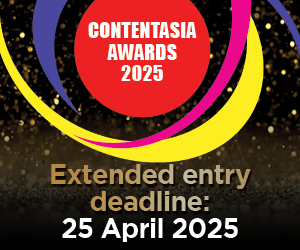Consumers are seeing “no significant divide between digital and traditional media: what they want is more flexibility, freedom and convenience in when and how they consume their preferred content,” says PwC’s new Global entertainment and media outlook 2015–2019.
Looking at an environment in which “empowered consumers seek out tailored, inspiring content experiences that transcend platforms”, PwC says that as “consumers around the world become connected, their behaviour becomes more similar”. This is subject to two differentiators. “The first is the quality of the available infrastructure for consuming content. The second is consumers’ common desire for content experiences that are relevant to them personally – which is why, even in a globalised world, meeting local preferences remains critical,” says Marcel Fenez, PwC’s Global leader, entertainment and media.
“Digital or non-digital – for consumers it’s all about content experiences,” Fenez says, adding: “Given the wide variations in consumer preferences, the challenge for entertainment and media companies is to blend data insights and consumer intuition to maximise the value of the experiences they offer. The prize for achieving this is heightened by the fact that the consumer has never been more up for grabs than today.”
The latest Outlook shows total worldwide entertainment and media revenues rising at a compound annual growth rate (CAGR) of 5.1% over the coming five years, from US$1.74 trillion in 2014 to US$2.23 trillion in 2019. Japan has the slowest growth at a CAGR of 0.9%, and Nigeria has the fastest at 15.1%. Indonesia is the fastest-growing advertising market at a CAGR of 12.9% to 2019.
Consumers call the shots, as content experience trumps delivery platforms, the report says. “Overall, what’s emerging is an environment where consumers regard any distinction between ‘digital’ and ‘non-digital’ as irrelevant....
Consumers are seeing “no significant divide between digital and traditional media: what they want is more flexibility, freedom and convenience in when and how they consume their preferred content,” says PwC’s new Global entertainment and media outlook 2015–2019.
Looking at an environment in which “empowered consumers seek out tailored, inspiring content experiences that transcend platforms”, PwC says that as “consumers around the world become connected, their behaviour becomes more similar”. This is subject to two differentiators. “The first is the quality of the available infrastructure for consuming content. The second is consumers’ common desire for content experiences that are relevant to them personally – which is why, even in a globalised world, meeting local preferences remains critical,” says Marcel Fenez, PwC’s Global leader, entertainment and media.
“Digital or non-digital – for consumers it’s all about content experiences,” Fenez says, adding: “Given the wide variations in consumer preferences, the challenge for entertainment and media companies is to blend data insights and consumer intuition to maximise the value of the experiences they offer. The prize for achieving this is heightened by the fact that the consumer has never been more up for grabs than today.”
The latest Outlook shows total worldwide entertainment and media revenues rising at a compound annual growth rate (CAGR) of 5.1% over the coming five years, from US$1.74 trillion in 2014 to US$2.23 trillion in 2019. Japan has the slowest growth at a CAGR of 0.9%, and Nigeria has the fastest at 15.1%. Indonesia is the fastest-growing advertising market at a CAGR of 12.9% to 2019.
Consumers call the shots, as content experience trumps delivery platforms, the report says. “Overall, what’s emerging is an environment where consumers regard any distinction between ‘digital’ and ‘non-digital’ as irrelevant. Instead of favouring one or the other, they’ve taken on board the proliferation of content and access options enabled by digital, and are exploiting it to seek more flexibility and freedom – for which read ‘choice’ – in what, when and how they consume. In making these choices, they’re migrating to offerings that combine relevance and convenience – attractive content, easy discovery, social community – with an inspiring, personalised experience, however it’s delivered.
The report adds that, as a result, while global revenue from digital media will continue to exhibit stronger growth, non-digital media will still contribute well over 80% of global consumer revenues in 2019.
“A key feature of this multifaceted environment is the resilience – and in some cases resurgence – of aspects of ‘traditional’ media, including the shared, live experiences that consumers still love”. This includes higher spend on live music ticket sales and cinema box office, both of which are forecast to outpace overall consumer spending.



















